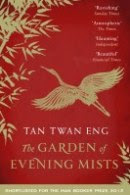I don't know if I'll ever do something similar to this, but it wasn't too long ago that I wrote two pieces about the same establishment within two weeks. It helped that the other place had slightly different characters during different times of the day. ...I don't think the Three Little Pigs/Big Bad Wolf needs any more endorsements, do you?
Thing is, Nambawan did nothing to warrant a second write-up - maybe other than sticking around and still doing what they do. Which is the only thing my makan kaki and I wish for all restaurants. Can't ask any more than that.
Nambawan — Part Deux
first published in The Malaysian Insider, 15 April 2013
That newspaper clipping is still there. I snapped a photo of it on impulse. Melody was tickled by that, as was the manageress of the place.
What memories.
We have been to a number of eateries over the years, some of which folded within several years since our last visit. A couple of those had become second homes, which made their closure all the more depressing. Invariably, they were all moms-and-pops; franchises were only for convenience, not conviviality.
Over two years ago, Melody was introduced to Nambawan Restaurant by a fellow Ipohite and more well-travelled food crawler. The owner, it seems, just decided to set up shop at Sri Manja Square One. Nambawan's gruff, taciturn chef (‘kay, I was scared of him) had worked in New Zealand for a time.
In spite of the humble décor and bad copywriting ("Taste your sense to infinity"?), we were struck by the price-to-portion ratio—affordable, even by the neighborhood's standards. The portions aren't really that big, so one can sample up to two or three items. On top of that, the chef's pretty skilled.
Everything we tried: the amatriciana pasta, the signature stone-charbroiled pork belly, and the 100 per cent home-made pork burger, was good and made just right. They had a 100 per cent home-made beef burger for a while, starring a patty said to be made of hand-chopped tenderloin.
Suffice to say that Nambawan has a good week-day menu, but fans and first-timers alike will look forward to the weekend specials. These include favourites such as roast pork belly, maybe lamb shank, and two other items.
You never know what might turn up. On our "homecoming" to this place, they also served a Tex-Mex pulled pork dish and a "50% pork + 50% bacon burger."
"50+50 burger?" Melody gasped. She was a bigger sucker for bacon than I was, so that's what she ordered. "Hold the fries and add more coleslaw," she added.
I stuck with the familiar roast pork belly, which is really a Western-style strip of siew yoke. We thought we could slip in a carbonara if there was enough room.
My order hit the table first. I felt a bit deflated. Inflation seems to have crept up on this little corner of Taman Sri Manja. The pork belly looked a bit smaller than the last time I ate it, and there was one less half-a-potato.
One bite restored my hopes for his place. Oh, yes... that's how I remembered it. The roasted pork skin was dense, so I applied more pressure on the fork. Glistening, semi-transparent fat oozed out from various crannies as I cut another piece of belly.
The lean parts had flavour, the fatty bits were silky and unctuous, and the partly caramelised skin was crispy and chewy in turns. I had little use for the sweet apple sauce meant to balance the richness of the meat, which I'd rather pair with the lovely light-brown sauce covering the spuds.
The second half of the main event began when Melody's 50% pork/50% bacon burger arrived. Instead of devouring it the conventional way, she deconstructed the dish with knife and fork, eating each component as she saw fit.
I leaned in as Melody sliced into the patty, which was large for a RM9.90 burger, and released the familiar smell of cured meat, fat and salt. I almost swooned. She "mmm"-ed in appreciation of the flavour and the genius behind it. "Why didn't anybody else think of this before?" she gushed.
In between bites of belly, Melody slipped me a few pieces of her bacon-enhanced patty. How to describe the fine balance of textures between fresh and cured meat, the mingling of the flavours and the smoky sharp tang of salt that gets people begging for more, despite the health hazards?
I gave up and just surrendered to the sensations.
"'You must try this'," Melody supplied as she mentally drafted a sales pitch for her Facebook update. Trust her to come up with the pithiest lines.
"So, got room for carbonara?" I later asked, after I wiped my mouth.
Melody pondered it briefly, and shook her head. I thought as much.
Madam Yap the manageress had different ideas, however.
"Would you like a little soup?" she asked. "Made with shiitake mushrooms. It tastes great. You'll love it."
We exchanged wary looks. Why not? Soup's more manageable than a carbonara.
"Just a bit," Melody pleaded, just in case.
What arrived was a normal portion of light brown not-very-runny and somewhat hearty shiitake mushroom soup. The chunks were finer and the broth was so ... yes, this is how you do Western-style shiitake mushroom soup.
When the soup was gone, I looked around to see if it was safe to lick the bowl. Across the table, Melody glared at me as I ran a finger all over the inside of the bowl and sucked up what it had collected.
You'd think the chef would be chuffed, Mel.
I know I was.
Nambawan Restaurant and Café
10, Jalan PJS3/48Sri Manja Square One
Taman Sri Manja
6½ Miles, Off Old Klang Road
46000 Petaling Jaya
Non-halal
Lunch: 12pm-3pm
Dinner: 6pm-10pm
Closed every other Monday
+6016-224 1533 (Yap)
+6013-263 2772 (Gilbert)
Facebook page
Categories:
Eating Out,
The Malaysian Insider







